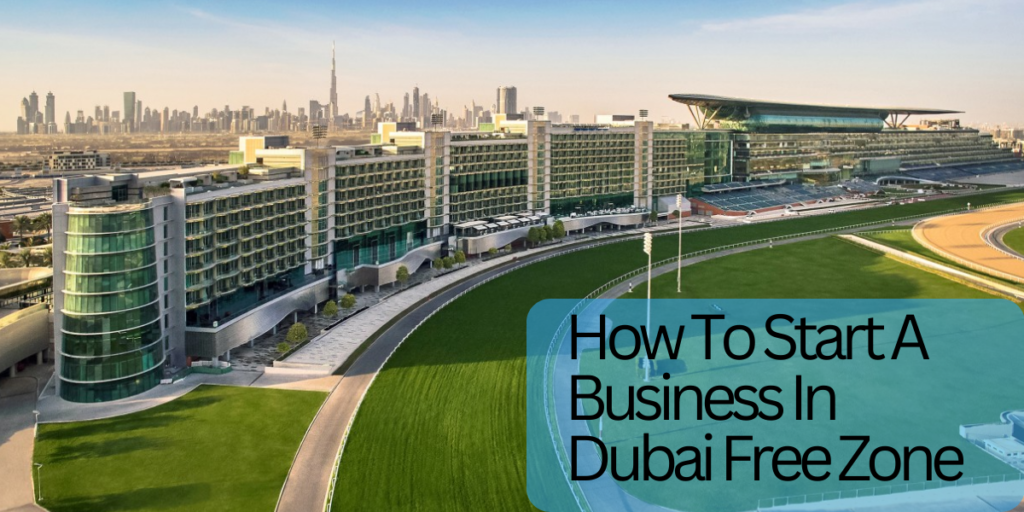Are you looking to start your own business in Dubai but don’t know where to begin? Look no further than the city’s thriving free zones. With tax exemptions, 100% foreign ownership, and a range of other benefits, these designated areas offer an ideal environment for entrepreneurs to launch their ventures.
In this post, we’ll guide you through the process of starting a business in Dubai’s free zones – from choosing the right zone for your needs to registering your company and obtaining the necessary permits. So grab a pen and paper, and let’s get started on turning your entrepreneurial dreams into reality!
Free Zone Authority
The Free Zone Authority is a Dubai government entity that offers free trade zones in which businesses can be established without the need for a local sponsor. The Free Zone Authority also provides a one-stop shop for business setup, licensing, and visa processing.

Licenses
There are many different types of licenses available in Dubai Free Zones. The most common type of license is the commercial license, which allows you to carry out any type of business activity. If you want to open a shop or office in a free zone, you will need a trade license. There are also licenses available for services, manufacturing, and storage.
When choosing a license, it is important to consider the type of business you want to set up and the activities you want to carry out. You should also consider the size of your business and whether you plan on expanding in the future. Once you have decided on the type of license you need, you can begin the process of applying for one.
The first step in applying for a license is to choose a free zone where you want to set up your business. There are many different free zones located around Dubai, so it is important to research each one before making a decision. Once you have selected a free zone, you can then begin the process of filling out an application form.
After your application has been approved, you will be required to pay a fee and submit all of the necessary documents. These documents include your passport, visa, and proof of residency. Once your documents have been submitted, you will be issued a trade license that allows you to operate your business in Dubai Free Zone.
Taxes in Dubai Free Zones
The United Arab Emirates is a federation of seven emirates, each with its own ruler. The constituent emirates are Abu Dhabi, Ajman, Dubai, Fujairah, Ras al-Khaimah, Sharjah and Umm al-Quwain. Each emirate has its own government with a high degree of autonomy. However, the UAE does not have any federal taxes.
The VAT was introduced in the UAE on 1 January 2018 at a rate of 5%. VAT is levied on the supply of goods and services within the UAE. Exports are zero-rated and imports are subject to VAT at 5%. There are certain exemptions from VAT such as healthcare and education.
There are also a number of free zones in the UAE which offer 100% foreign ownership and tax-exempt status for up to 50 years. These free zones include the Jebel Ali Free Zone (JAFZA), Dubai Media City (DMC), Dubai International Financial Centre (DIFC), and Abu Dhabi Media Zone (ADMZ).
Company registration in Dubai Free Zone
In order to register your company in a Dubai Free Zone, there are a few key things that you will need to do. First, you will need to choose the type of business that you would like to register. There are many different types of businesses that can be registered in a Free Zone, so it is important to choose the one that best suits your needs. Once you have chosen the type of business, you will need to select a name for your company. The name must be unique and cannot be already registered with the Dubai Free Trade and Companies Registry.
Once you have chosen a name for your company, you will need to obtain the required licenses and permits from the relevant authorities. Depending on the type of business you have selected, the licenses and permits required may vary. However, all businesses will require a trade license in order to operate legally in Dubai. After you have obtained all the necessary licenses and permits, you will then need to find suitable premises for your business.
There are many different types of premises available in Dubai Free Zones, so it is important to choose one that is suited to your specific business needs. Once you have found suitable premises, you will then need to register your company with the Dubai Free Zone Authority. The registration process is simple and straightforward, and once completed, your company will be officially registered and ready to start operating within the Free Zone.
Pros and cons of starting a business in a free zone
There are many pros and cons to starting a business in a free zone. On the plus side, free zones offer 100% foreign ownership, a tax-free environment, easy access to markets and infrastructure, and relaxed visa requirements. On the downside, businesses in free zones are subject to certain restrictions (e.g. cannot sell to the local market), and there is often a lack of transparency and accountability.
When deciding whether or not to start a business in a free zone, it is important to weigh the pros and cons carefully and consult with experts who can advise on the best course of action for your particular business. More Post Visit.




